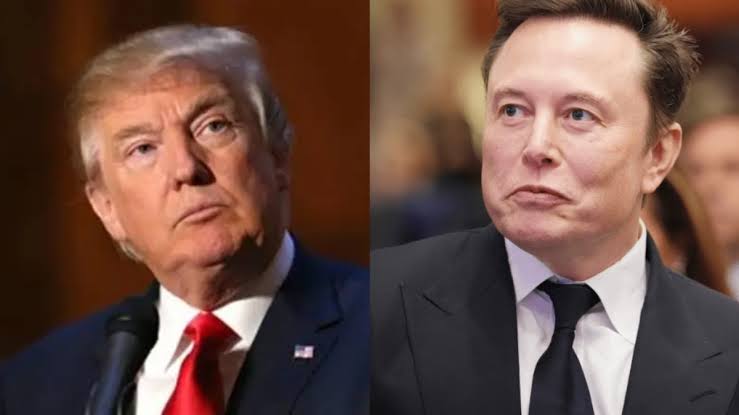Elon Musk, the billionaire entrepreneur and CEO of Tesla and SpaceX, has publicly expressed regret for some of his recent social media posts targeting U.S. President Donald Trump. In a statement posted on X, Musk wrote, “I regret some of my posts about President
@realDonaldTrump
last week. They went too far.” This admission follows a highly publicized feud between the two influential figures, which erupted over Musk’s vocal opposition to a proposed government spending bill championed by Trump.
The conflict began when Musk labeled the spending bill a “disgusting abomination” on X, criticizing its scale and provisions as fiscally irresponsible. His remarks drew sharp rebuke from Trump, who responded with a series of posts on Truth Social, warning of “serious consequences” for Musk and his companies. Trump hinted at the possibility of terminating lucrative government contracts with SpaceX and scrutinizing Tesla’s federal subsidies, escalating the dispute into a broader confrontation.
Musk’s posts went beyond policy critique, venturing into personal attacks that intensified the feud. In one now-deleted post, he alleged that Trump’s name appeared in documents related to Jeffrey Epstein, a claim that lacked substantiation and provoked significant backlash. The inflammatory nature of these statements prompted widespread discussion on X, with users debating the propriety of Musk’s rhetoric and the potential repercussions for his businesses.
The feud quickly became a focal point of online discourse, with hashtags like #MuskVsTrump trending across platforms. Political analysts noted that Musk’s outspoken criticism marked a departure from his previously neutral stance on Trump’s administration, reflecting his growing influence as a political commentator on X. However, the personal nature of his attacks, particularly the Epstein-related claim, was seen by many as crossing a line, prompting calls for Musk to retract or clarify his statements.
Trump’s response was equally forceful, leveraging his platform to question Musk’s business practices and loyalty to American interests. In one Truth Social post, Trump accused Musk of prioritizing globalist agendas over national priorities, a charge that resonated with his base. The president’s threats to target SpaceX contracts, which include billions in NASA and Pentagon deals, raised concerns about the potential economic impact on Musk’s enterprises.
Musk’s regretful statement appears to be an attempt to de-escalate the situation, though he did not specify which posts he regretted or offer a formal apology. Sources close to Musk, cited by Bloomberg, suggest that the billionaire was advised by his inner circle to temper his rhetoric to avoid further antagonizing the administration. The timing of his statement coincides with reports of backchannel discussions between Musk’s team and Trump’s advisors to mend ties.
The fallout from this feud has broader implications for Musk’s role as a public figure and the intersection of business and politics. As the owner of X, Musk has increasingly used the platform to shape public discourse, often wading into contentious issues with unfiltered commentary. His ability to influence markets and policy debates has made him a polarizing figure, with supporters praising his candor and critics decrying his impulsiveness.
The dispute also highlights the delicate balance Musk must navigate as a government contractor. SpaceX’s contracts, including those for satellite launches and astronaut transport, are critical to its financial health, and any disruption could have significant consequences. Similarly, Tesla’s reliance on federal tax credits and regulatory approvals underscores the risks of alienating the administration.
Public reaction to Musk’s regret has been mixed, with some X users applauding his willingness to acknowledge fault, while others view it as a strategic retreat to protect his business interests. “Musk knows he overplayed his hand,” wrote one user, while another commented, “Good on him for owning up, but damage is done.” The polarized responses reflect the broader cultural divide over Musk’s influence and Trump’s leadership style.
Analysts suggest that this episode may prompt Musk to adopt a more cautious approach to political commentary, though his track record suggests otherwise. In recent years, Musk has clashed with regulators, lawmakers, and public figures on issues ranging from COVID-19 policies to free speech, often doubling down in the face of criticism. His ownership of X has amplified his platform, giving him unparalleled reach but also exposing him to greater scrutiny.
The feud has also reignited discussions about the role of social media in political discourse, particularly among high-profile figures. Musk’s posts, which reached millions of followers, underscore the power of X as a tool for shaping narratives, but also its potential to inflame tensions. The platform’s real-time nature allows for rapid escalation, as evidenced by the swift back-and-forth between Musk and Trump.




